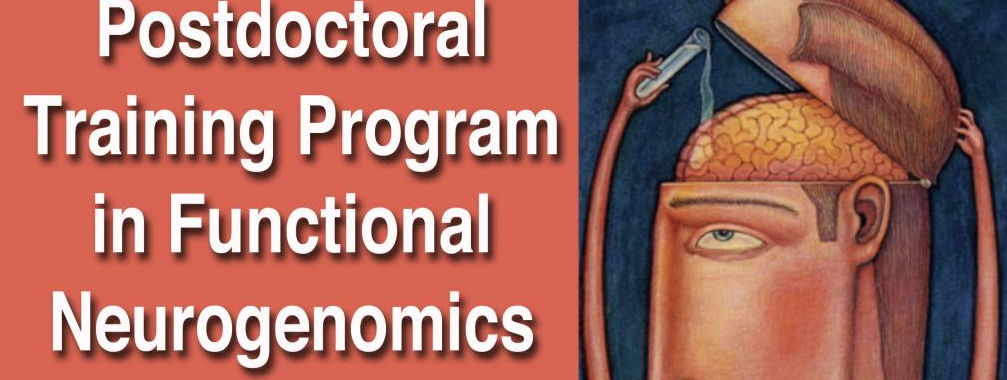Training Positions Available!
Applications are invited for the Postdoctoral Program in Functional Neurogenomics. This training program is associated with the Vanderbilt Brain Institute and is supported by a T32 training grant awarded by the NIMH – it was recently renewed for a fifth funding cycle! Our alumni have gone on prominent academic careers and other successful biomedical research careers. Outstanding postdoctoral scholars will work in the laboratory of one of approximately 30 program-affiliated faculty members with positions in various departments at Vanderbilt University or Vanderbilt University Medical Center. Interested candidates are encouraged to contact any of the training faculty to learn about opportunities in individual laboratories. Additional information is also available by emailing the Program Director, Roger J. Colbran, Ph.D. (Professor of Molecular Physiology and Biophysics).
About the Training Program
Neuroscientists continue to struggle to understand the pathophysiological mechanisms that underlie mental illness, and even more so to translate this information into the personalized therapies needed for numerous diseases. Although research over the past five decades has uncovered genes, gene variants, molecular networks, cellular interactions and brain pathways underlying brain disorders, our translation of this information to a useful understanding of disease mechanisms that can facilitate the development of new therapeutic approaches remains limited.
The goal of the Vanderbilt Postdoctoral Training Program in Functional Neurogenomics is to equip new investigators with state-of-the-art skills required to link genetic or genomic alterations to normal behavior and/or its dysregulation in brain diseases. Our trainees receive close, customized personal mentoring to foster the development of the technical and intellectual skills needed to understand and exploit:
- The functional impact of genetic and epigenetic variation in vivo
- The developmental and regulatory context within which genes produce alterations in synaptic physiology
- The circuit-level pathologies that lead to changes in behavior
- The best practices in translating research findings into novel therapies.
Our program facilitates the merger of multiple disciplines, providing trainees with experience in the opportunities afforded by genetic model systems, the translation of human genetic findings into a wide-range of construct-valid animal models and induced pluripotent stem cells, the manipulation of molecules, cells and circuits with advanced technical approaches, and/or in capturing the physiological and behavioral consequences of such manipulations. These efforts are founded on a robust institutional investment in neuroscience leadership, faculty, educational programs, technological expertise and core facilities over the past two decades.
Two established neuroscientists with a long-standing interest in advancing the careers of junior scientists oversee the Program. The Program Director is Roger J. Colbran, Ph.D., Professor and Vice-Chair of the Department of Molecular Physiology and Biophysics, and fellow of the AAAS. Dr. Colbran’s research lab investigates molecular mechanisms involved in synaptic plasticity and behavior using multi-disciplinary approaches from biochemical structure-function studies to mouse genetics and behavior. The Program Associate Director is Lisa Monteggia, Ph.D., Barlow Family Director of the Vanderbilt Brain Institute and Professor of Pharmacology and a member of the National Academy of Medicine. Dr. Monteggia has made numerous contributions to understanding the role of BDNF and epigenetic regulation in normal brain function and Rett Syndrome, and continues to pioneer studies investigating the pathophysiology of depression and mechanisms of antidepressant action. Drs. Colbran and Monteggia are highly experienced mentors, having trained numerous predoctoral and postdoctoral fellows who have gone on to productive careers as independent research scientists.
